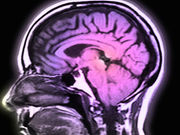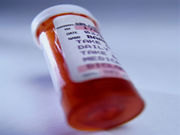Tag: Attention Deficit Disorder (ADHD)
Delayed Development ID’d in Five Brain Regions of ADHD Patients
Attention-deficit/hyperactivity should be considered a brain disorder, researchers say
Mediterranean Diet May Help Lower ADHD Risk
Children with medium to low adherence to diet three to seven times more likely to have ADHD
U.S. Children Make Over 6 Million Office Visits/Year for ADHD
Number represents 6 percent of all children's visits to the doctor in 2012-2013
Rate of ADHD Diagnoses Stabilizing Among Preschoolers
2011 AAP treatment guidelines may have contributed to the stabilization
Diet in Pregnancy Could Affect Odds of ADHD in Offspring
Higher IGF2 methylation associated with increased ADHD symptoms
Taking Acetaminophen While Pregnant May Raise Risk of ADHD
But only association found, and researchers say women should still take the painkiller if needed
Many Patients Don’t Reach Target Dose of Atomoxetine
Total days of therapy/year higher for patients who filled at least one 80 mg prescription
Increase in Evidence-Based Practice for Children With ADHD
Findings based upon publicly-insured children from 2001 to 2010
Epilepsy, Febrile Seizures in Childhood May Raise ADHD Risk
Risk of ADHD more than three times higher than for those without a history of either condition
Burst of Moderate Exercise May Reduce Adult ADHD Symptoms
Activity won't replace standard treatments but could be helpful add-on














